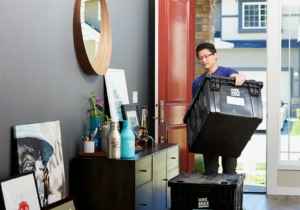🏠 Moving After an Injury: How to Find the Right Home for Your New Needs in St. Louis
After a serious injury—like one caused by a car accident—your life can change in an instant. While your St. Louis personal injury attorney is helping you pursue the compensation you deserve, there’s another major shift you may face: the need to move into a home that better supports your physical recovery and long-term health.
Fortunately, you don’t have to navigate this alone. Many lawyers work with trusted professionals across industries—including real estate agents experienced in accessible housing—to help you move forward, both legally and personally.
🧠 Why Your Attorney Might Be Able to Help With Your Move
Personal injury attorneys often have extensive referral networks, and that includes professionals who understand the needs of injury survivors. Don’t hesitate to ask your attorney if they can connect you with a reputable St. Louis real estate agent who specializes in finding homes for clients with accessibility needs.
🏡 Key Home Features to Consider After an Injury
Start by talking to your doctor or physical therapist. They’ll help you understand what mobility or safety adaptations you need now—and what to plan for in the future.
Common home accessibility features include:
-
Wheelchair ramps or lifts
-
Zero-step entryways
-
Wider doorways and hallways
-
Roll-in showers and handrails
-
Lever-style faucets and doorknobs
-
Lowered countertops and kitchen appliances
-
Accessible light switches and smart home systems
-
Stair lifts or elevators in multi-level homes
And no—accessible homes don’t have to be institutional or boring. With the right layout and design, they can be just as modern and beautiful as any traditional space.
🚶♀️ Don’t Forget About Neighborhood Accessibility
Your home isn’t the only thing that matters—your location is just as important. After an injury, living in a walkable, well-connected neighborhood can greatly impact your independence and quality of life.
When house hunting, consider:
-
Proximity to public transportation
-
Sidewalk availability and terrain
-
Distance to medical care, grocery stores, and support services
A great neighborhood can make day-to-day tasks easier and help you stay active and engaged.
🤝 How to Work With the Right Real Estate Agent
If you’re buying a home post-injury, work with an agent who understands accessibility firsthand. This isn’t just about finding a one-story house—it’s about understanding your current and future mobility challenges.
Your real estate agent should:
-
Know how to identify accessible or adaptable homes
-
Be familiar with ADA-style features
-
Have local insight into which communities meet your needs
Before you begin your search, share these details:
-
Your budget
-
Your medical needs or limitations
-
Accessibility requirements
-
Preferences for layout, location, or style
The more they know, the more they can filter listings to find homes that truly fit.
💬 Final Thoughts: An Injury Doesn’t End Your Options—It Expands Them
An injury can change your lifestyle, but it doesn’t need to limit your future. Moving into a more accessible home—or a more mobility-friendly neighborhood—can greatly improve your safety, comfort, and freedom.
With the right guidance and support, finding a home that meets your new needs isn’t just possible—it can be empowering.

